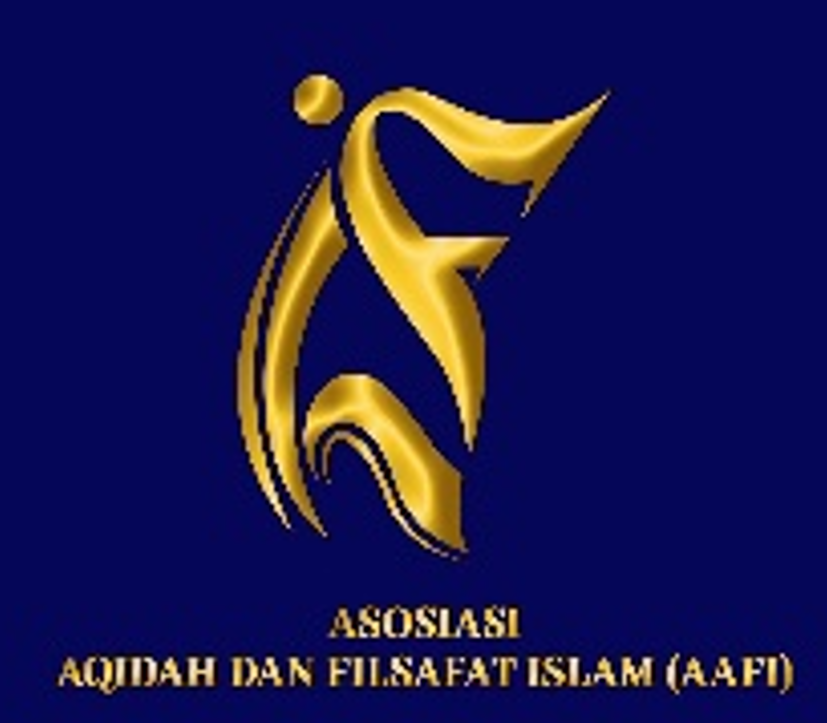Women and Modern Families: An Analysis of Quraish Shihab's Perspectives
Abstract
In modern families, Islamic values are increasingly eroded due to the challenges posed by the advancement of information and communication technology. In contemporary Muslim families, wives often work outside the home but still serve as the primary educators within the family. This article aims to elucidate the concept of a harmonious family in the context of modern life, according to Quraish Shihab. The research employs a qualitative method with data collection techniques based on a literature review, examining Quraish Shihab's thoughts through his works from 1996 to 2022, encompassing ten books related to family issues. The findings reveal that Quraish Shihab places significant emphasis on the role of women and family. According to his works, including "Perempuan" and "Pengantin Al-Qur’an," a harmonious family involves prospective spouses getting to know each other before marriage, having a lawful marriage contract in Islam, and ensuring the presence of a guardian during the marriage ceremony. Couples should support each other, exchange roles, and maintain good communication. Shihab also highlights the importance of women's roles in working and education in modern families, advocates for balanced marriage ages, and outlines the conditions under which divorce is permissible in Islam. These principles are highly relevant to the realities faced by modern families today.
Keywords
Full Text:
PDFReferences
Fauziah, N., Indrawati, E. S., & Dinardinata, A. (2023). From Western to The Eastern Countries, then to Indonesia: A Scoping Review of Family Harmony Theories and Research. Proceedings of International Conference on Psychological Studies (ICPsyche), 4, 117–133. https://doi.org/10.58959/icpsyche.v4i1.30
Gunawan, A. I. (2022). Peran Penyuluh Agama dalam Membentuk Keluarga Harmonis. Jurnal At-Tatbiq: Jurnal Ahwal Al-Syakhsiyyah, 07(1), 26–35.
Herawati, T., Kumalasari, B., Putri, F., & Tyas, S. (2018). Social Support, Family Interaction, and Marital Quality of Dual Earner Family. Jurnal Ilmu Keluarga Dan Konsumen, 11(1), 1–12.
Hidayatullah, A. H. (2018). RELASI SUAMI-ISTRI KELUARGA MUALAF DALAM MEMBANGUN KELUARGA HARMONIS PERSPEKTIF TEORI FUNGSIONALISME STRUKTURAL.
Hypatia, S., Muffidah, S. F., Lubis, A. G., & Hambali, Y. (n.d.). THE VALUE OF RELIGIOUS MODERATION. Proceeding: Internasional Seminar Implementation of Religious Moderation In Islamic Studies, 171–180.
Jati, I. P. (2021). Program Pascasarjana Institut Agama Islam Negeri. Repository.Radenfatah.Ac.Id, Mi, 1–72.
Kansil, R., Tangkudung, J., & Mewengkang, N. (2017). Fenomena Komunikasi Keluarga Tradisional dan Keluarga Modern dalam Membentuk Kepribadian Anak di Kelurahan Bahu. E-Journal “Acta Diurna,” VI(3), 1–13.
Mukhtar, N. (2013). M. Quraish Shihab, Menggugat Bias Gender “Para Ulama.” JOURNAL OF QUR’AN AND HADITH STUDIES, 2(2), 189–208. https://doi.org/10.15408/quhas.v2i2.1314
Musthofa, M., & Lutfiah, S. Q. (2024). EARLY MARRIAGE AND ITS INFLUENCE ON FAMILY HARMONY IN AN ISLAMIC PERSPECTIVE. Al-Risalah, 15(1), 197–214. https://doi.org/10.34005/alrisalah.v15i1.3351
Nafsi, S. (2016). Pemikiran Gender Quraish Shihab dalam Tafsir al-Misbah. Manthiq, 1(1), 4–19.
Nikmah, B., & Sa’adah, N. (2021). Literature Review: Membangun Keluarga Harmonis Melalui Pola Asuh Orang Tua. Taujihat: Jurnal Bimbingan Konseling Islam, 2(2), 188–199. https://journal.iain-samarinda.ac.id/index.php/TAUJIHAT/index
Nurhasanah. (2020). Pemikiran Hamka dan Nasaruddin Umar dalam Kesetaraan Gender. Al Tadabur: Jurnal Ilmu Alquran Dan Tafsir, 05(02), 281–296.
Pebrian, W. (2019). Toleransi Dan Kebebasan Beragama Menurut Hamka Dalam Tafsir Al-Azhar.
Quraish Shihab, M. (2015). M. Quraish Shihab Menjawab 101 Soal Perempuan yang Patut Anda Ketahui. Lentera Hati.
Risnawaty Widayani, A. (2021). Peranan Pendidikan Islam dalam Mewujudkan Keluarga Harmonis. DIRASAT ISLAMIAH: JURNAL KAJIAN KEISLAMAN, 2(2), 125–138. https://e-journal.faiuim.ac.id/index.php/dirasatIslamiah
Shihab, M. Q. (1999). Fatwa-fatwa Seputar Ibadah dan Muamalah. Mizan.
Shihab, M. Q. (2000). Wawasan al-Qur’an; Tafsir Maudhu’i atas Pelbagai Persoalan Umat. Mizan.
Shihab, M. Q. (2008). Menjemput Maut: Bekal Perjalanan Menuju Allah swt. Lentera Hat. https://www.google.com/books?id=D-z1CAAAQBAJ
Shihab, M. Q. (2011). Menabur Pesan Ilahi: Al-Qur’an dan Dinamika Kehidupan Masyarakat. In Jakarta: Lentera Hati. Lentera Hati.
Shihab, M. Q. (2015). Pengantin Al-Qur’an. Lentera Hati.
Shihab, M. Q. (2019). Jawabanya adalah cinta wawasan Islam tentang aneka obyek cinta. Lentera Hati.
Shihab, M. Q. (2022a). Menjawab 1001 Soal keislaman yang Patut Anda Ketahui. Lentera Hati.
Shihab, M. Q. (2022b). Perempuan. Lentera Hati.
Shihab, M. Q., & Shihab, N. (2019). Shihab dan Shihab bincang bincang seputar tema populer terkait ajaran islam. Lentera Hati.
Sugiyono. (2015). Metode Penelitian Kuantitatif, Kualitatif dan R&D. In Koleksi Buku UPT Perpustakaan Universitas Negeri Malang. Alfabeta.
Suharto, D. (2011). Keluarga Qurani. PT Gramedia Pustaka Utama.
Taubah, M. (2016). PENDIDIKAN ANAK DALAM KELUARGA PERSPEKTIF ISLAM. Jurnal Pendidikan Agama Islam (Journal of Islamic Education Studies), 3(1), 109. https://doi.org/10.15642/pai.2015.3.1.109-136
Timur, B. J. (2023). Jumlah Talak dan Cerai Menurut Kabupaten/Kota di Provinsi Jawa Timur, 2020-2022. 25 JULI. https://jatim.bps.go.id/statictable/2023/07/25/3029/jumlah-talak-dan-cerai-menurut-kabupaten-kota-di-provinsi-jawa-timur-2020-2022.html
Windarwati, H. D., Budiman, A. A., Nova, R., Ati, N. A. L., & Kusumawati, M. wahyu. (2020). The Relationship between Family Harmony with Stress, Anxiety, and Depression in Adolescents. Jurnal Ners, 15(2), 185–193. https://doi.org/10.20473/jn.v15i2.21495
Zahrok, S., & Suarmini, N. W. (2018). PERAN PEREMPUAN DALAM KELUARGA. IPTEK Journal of Proceedings Series, 5, 61. https://doi.org/10.12962/j23546026.y2018i5.4422
Zhan, Q., & Wang, Q. (2021). The Development of the College Students’ Experience of Family Harmony Questionnaire (CSEFHQ). Frontiers in Psychology, 12, 1–13. https://doi.org/10.3389/fpsyg.2021.658430
DOI: http://dx.doi.org/10.22373/jpi.v4i1.24126
Refbacks
- There are currently no refbacks.
Copyright (c) 2024 Tuty Wahyuni

This work is licensed under a Creative Commons Attribution-NonCommercial-ShareAlike 4.0 International License.
Redaksi Junal Pemikiran Islam (JPI): Gedung Fakultas Ushuluddin Lantai 1, Program Studi Aqidan dan Filsafat Islam Fakultas Ushuluddin dan Filsafat, UIN Ar-Raniry. Jln. Lingkar Kampus, Kopelma Darussalam Banda Aceh, Aceh 23111.Telp. (0651)7551295. eMail: jpi@ar-raniry.ac.id

This work is licensed under a Attribution-NonCommercial-ShareAlike 4.0 International (CC BY-NC-SA 4.0).






.png)
1.png)

.png)









